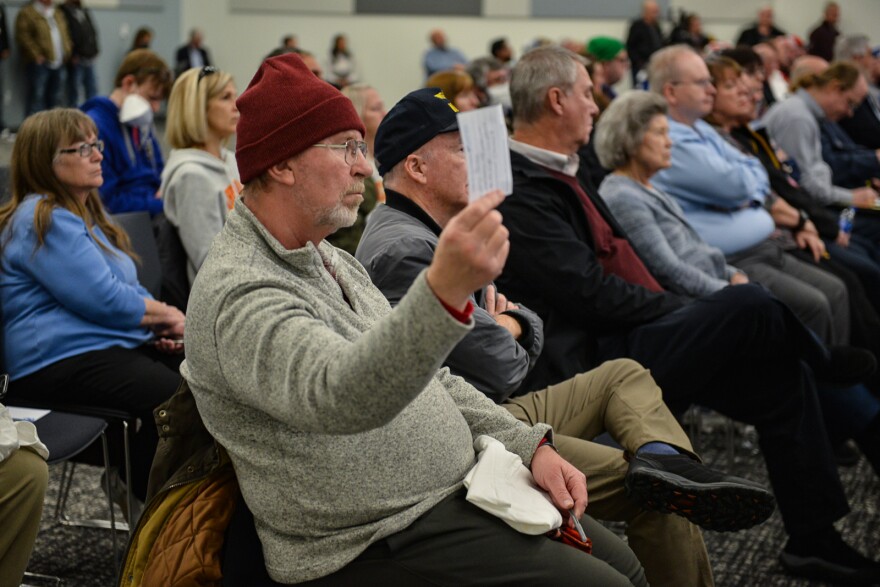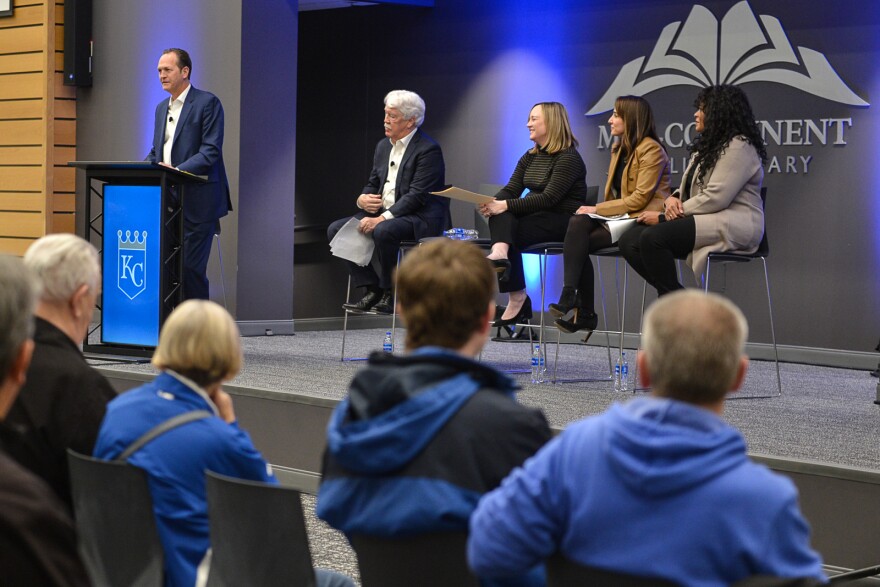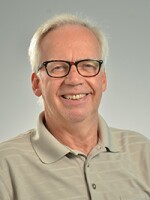The Kansas City Royals hosted on Wednesday the final stop in their community listening tour over their proposal to leave Kauffman Stadium and build a downtown ballpark and surrounding entertainment district.
Royals majority owner John Sherman, team executives and an architectural consultant told an audience at the Midwest Genealogy Center in Independence, Missouri, how the benefits of a downtown stadium would economically affect the entire metropolitan area.
Wednesday’s session, the last of three community listening opportunities, was the only stop outside of Kansas City, Missouri, where concerns centered largely on the proposed stadium’s possible impact on housing affordability.
The eastern Jackson County audience took the chance to ask instead about what will be lost if the team vacates the Truman Sports Complex.
“We recognize where ‘The K’ is today, and its proximity,” said Royals Chief Operating Officer Brooks Sherman. But the team’s delegates focused their answers more on the positive impact of a new, downtown presence.

Sherman said the new stadium and surrounding district could draw more than 2,000,000 fans a year.
“To give those fans – whether they’re in Kansas City, or they’re coming from the opposing team – an area with a stadium and a development around it,” he said, “that really shines a bright light in a very positive way on the entire region.”
Local businesses affected
Former Independence Mayor Eileen Weir said the majority of the city’s hotel tax revenue is a direct result of Royals home games.
Though she doesn’t expect that to change if the Royals relocate downtown, Weir said the real impact of a move would be on small, local businesses.
“Dixon’s Chili, Hi-Boy, V’s restaurant — those places, and even the QuikTrip, the gas stations, and supermarkets,” said Weir. “You see people go there before and after a Royals game.”
Other audience members voiced concerns over basic questions such as: How much are Jackson County taxpayers expected to pay for the new facility?
Brooks Sherman hasn’t yet been able to provide a clear answer. The team’s current development proposal depends on Jackson County voters extending a ⅜-cent sales tax to pay for renovations at Truman Sports Complex.
“You can’t put an exact number on that today,” he said. “That changes with interest rates. That changes with: What is the period of time the tax is extended?”

Majority owner John Sherman, no relation to Brooks Sherman, said the Royals are going to be the biggest investor in this project.
“We feel like, in order to make sure that this team thrives in this community for the next 30, 40, or 50 years, we have a world class ballpark,” he said. “It creates economic activity for 365 days a year and that’s why we’re asking that this is a public partnership.”
As he did at previous community meetings, John Sherman said the bulk of the financing would come from private sources.
The Royals’ ownership team has said that upkeep costs at Kauffman Stadium through 2031, when the current lease is up, will be as much or more than the cost to build a new ballpark.
The losing trends
The team didn’t give Kansas City fans much to cheer about in the 2022 season. They finished last in the American League Central, with 65 wins and 97 losses.
“We were not happy with the results of 2022,” said John Sherman. “In fact, the most disappointing part of that is that we expected to be better.”
The Royals also ranked 26th out of 30 teams in overall stadium attendance. Only Pittsburgh, Tampa Bay, Miami and Oakland were worse.
Many at the meeting noted that businesses surrounding the stadium thrive even more when the team is winning and more fans attend games.

The losing trends on the field may not help when Jackson County taxpayers are asked to extend the ⅜ cents sales tax, a move that could come as early as August.
“If it were today, I think it would be very challenging,” said Weir, who has lived in Independence for more than 30 years.
The former mayor said she doesn’t believe enough information is being provided by the Royals – specifically about the site the Royals eventually select – for that extension to be granted.
If a tax extension is granted by voters this summer, Sherman anticipates a three-year construction period, making 2027 the earliest the Royals could move into a new stadium. The current lease with Jackson County runs through 2031.
The team’s representatives did not provide a timetable on when a site will be selected. They have narrowed the possibilities down to four or five locations, all in the downtown area.






